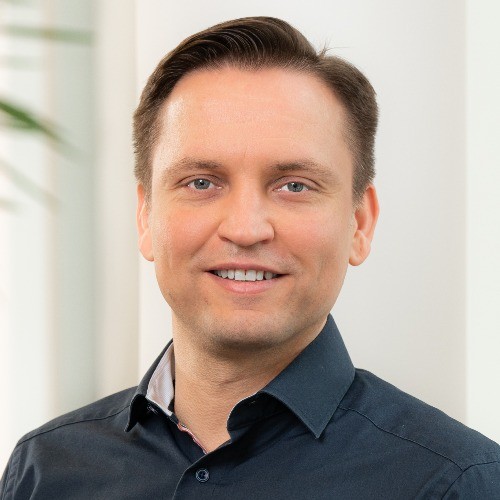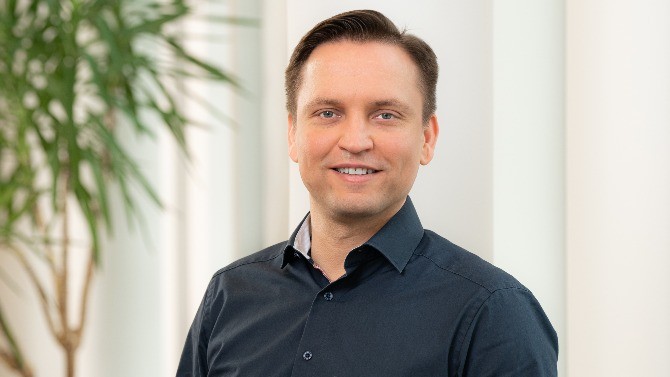
Your expert for questions

Enrico Reiche
Partner, Venture Deals Lead, PwC Germany
Tel: +49 1511 6781604
Email
Investors adapt to the changing market environment
The German venture capital industry is facing significant vulnerability. The decreasing resilience in the market has resulted in a shift in market metrics. The number of deals and deal volume in the VC market significantly decreased in 2023 compared to 2022. Predominantly declining indicators of market resilience have led to significant shifts in market metrics, including a massive increase in insolvencies, a sharp decline in exit valuations, as well as a reduced occurrence of trade sales and significantly fewer IPOs.
As a consequence, most investors are reducing their return expectations for their portfolio companies. Investors are also engaging in more negotiations on deal terms. For investors, flexibility, especially, has increased in the core parameters of target ownership stake, investment amount, and valuation. Key trends, such as investors’ focus on B2B business models and impact investing, continued in 2023.
“The majority of investors expects that their portfolio companies will yield lower returns than in previous years. The positive effect of this development, however, is that investors’ focus is increasingly directed towards capital-efficient, sustainable and long-term business models.”
The study at a glance
Key trends in the VC industry have continued into 2023, as geopolitical uncertainties have increased further and the resulting market slowdown has impacted market dynamics.
Number of deals as well as average round size decrease
Both the number of deals and the average round size decreased significantly compared to 2022, by approximately 40 % and 54 %, respectively. Predominantly declining indicators of market resilience have led to significant shifts in market metrics, showing a massive increase in insolvencies, a sharp decline in exit valuations, as well as a reduced occurrence of trade sales and significantly fewer IPOs. Investors anticipate a market recovery, supported by an increase in IPO numbers, no earlier than H2 2024.
This has resulted in longer holding periods and an increase in bridge financing since the beginning of 2022. 97.4 percent of respondents view convertibles as an instrument for bridge financing, significantly more than equity at 63.2 percent.
Investors increasingly focus on impact investments and capital-efficient business models
Considering the weak IPO and exit conditions, investors are placing a strong emphasis on capital-efficient (76 %) and sustainable business models while lowering their return expectations. In terms of investors’ focus areas, software development/SaaS businesses continue to play a crucial role. Three-thirds of all investors interviewed for the study state that they always or often consider these areas as their investment focus.
However, it is evident that ongoing geopolitical instabilities and the increasing urgency to address the climate crisis are making startups in climate tech, mobility & logistics, biotech, and medtech especially attractive to investors. In addition, impact investing is on the rise, with a strong focus on decarbonization.
Download study now
Venture Capital Market Study 2023
The use of ESOPs schemes increased compared to last year
The use of employee stock ownership plans (ESOPs) increases compared to the previous year. The dissemination of equity-linked incentive schemes increased for the second year across all phases, confirming the importance of ESOPs for the ecosystem.
“In particular with regard to the ‘war for talents’ ESOPs are substantially relevant to hire, retain and motivate highly qualified individuals.”
Investors demand lower IRRs for their startup investments
Investors rely on the Internal Rate of Return (IRR) to measure annualized returns of their portfolios and compare performance. The expected IRR of portfolio companies has decreased significantly compared to 2022. For early-stage investments, the expected IRR averages 31 % (compared to 36 % in 2022), while growth-stage IRR amounts to 25 % (compared to 32 % in 2022). Late-stage IRR increased slightly from 24 % to 28 %. Furthermore, the IRR expected by corporate venture capital investors (CVCs) is 5 percentage points below VC investors’ expectations for the respective portfolio company. This gap might be explained by the attributed strategic value of the portfolio company, which compensates for the lower financial return.
“With declining B2C and increasing B2B business models, driven in part by deep tech startups, deal selection becomes an even more important criterion for value creation at the early stage. Additionally, exit management is gaining importance for value creation, but in over 70 % of cases at all stages, an exit to the CVC or its parent company is never or rarely intended.”
“Despite the current market situation, the declining valuations of startups also offer an opportunity, for CVCs in particular. There is still a high demand and need for financing in the market and other investors are increasingly holding back, which, in conjunction with lower valuations, means that deals and investments are currently possible for CVCs that were not realizable two years ago due to the surplus of other capital in the market.”
Enrico Reiche,Partner, Venture Deals Lead, PwC GermanyDownload study now
Venture Capital Market Study 2023
Interest aroused?
Contact our experts
The methodology
For this market study, Prof Dr Dirk Honold (Nuremberg Institute of Technology) and PwC surveyed German and foreign investors in startups whose investment strategies are geared towards the German market or who have concluded deals in Germany. Depending on the questions, up to 63 respondents took part in this year’s study. The market data for 2023 is based on data up to the end of September and forecasts for the fourth quarter.














